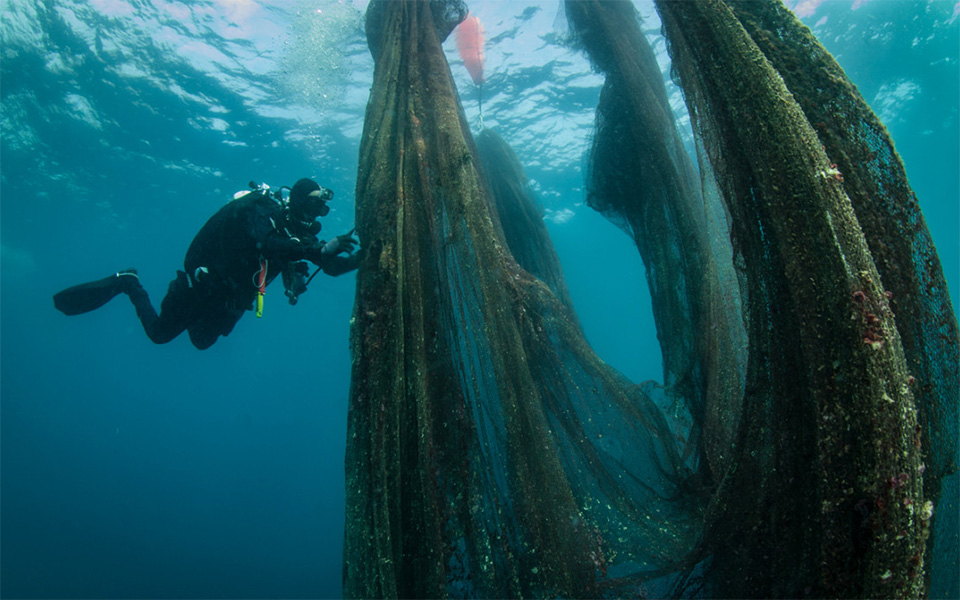An initiative called Healthy Seas announced it had completed a three-day sea cleaning operation in northern Greece on Monday during which divers collected two tons of so-called ghost nets – fishing nets that have been left or lost in the ocean by fishermen.
The cleaning work, conducted by four Dutch and six Greek divers, focused on the sea area near Stratoni, a small fishing town in the region of Halkidiki.
The nearby, coastal area of Stratoni is the home of a unique colony of the two seahorse species found in the Mediterranean – Hippocampus hippocampus and Hippocampus guttulatus, Healthy Seas said in a press release.
These species are characterized by the International Union for Conservation of Nature (IUCN) as “near threatened” and are vulnerable to entanglement in nets, and to habitat loss, it added.
“We spotted an impressive list of species including the protected marine mammal Delphinus delphis, the rough skate Raja radula, the pillow coral Cladocora caespitosa and the gastropod Tonna galea. The removal of the nets will allow the marine life to recolonize its lost habitat and will not pose any future entangling threats to the marine species inhabiting the area,” said Elina Samara, a marine biologist of the newly established Hippocampus Marine Institute who joined the operation.

© Shutterstock
The recovery mission was carried out in collaboration with Ghost Fishing Greece, Ghost Fishing Netherlands, AquaTec and UFR Team diving teams as well as Northern Greece Underwater Explorers, with valuable support from the local community.
Last November, the diving team removed over another ton of ghost nets from the area.
After the nets are collected, the team sends them to companies affiliated with Healthy Seas which recycle them to produce new products such as socks, sportswear, swim wear, and carpets.
This article was originally published by ekathimerini.com.












